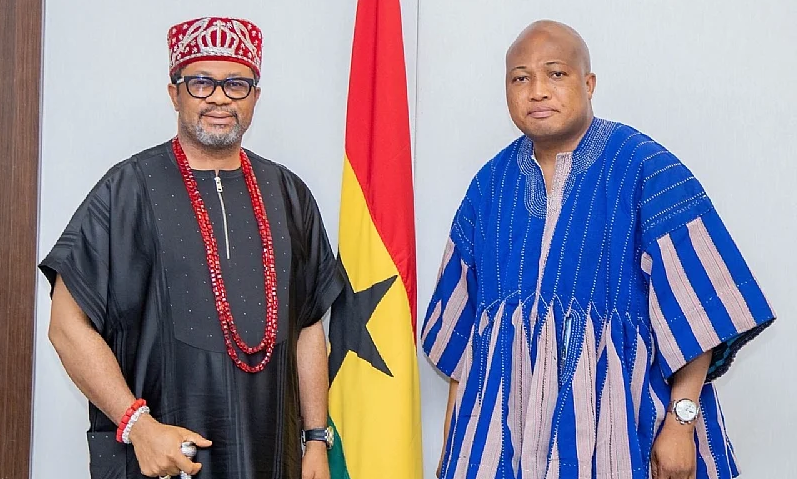The recent controversy surrounding Chukwudi Jude Ihenetu, the self-proclaimed King of Nigeria’s Igbo community in Ghana, highlights the delicate balance between cultural exchange and national sovereignty. A resurfaced video of Ihenetu, in which he discussed plans to establish an Igbo kingdom within Ghana, ignited concerns among Ghanaians and raised questions about the potential for conflict with existing traditional authorities. Ihenetu’s actions, including the reported enstoolment of sub-chiefs, were perceived as a violation of Ghanaian law and a disrespect of the country’s established chieftaincy system. The situation underscores the importance of clear communication and mutual respect between different cultural groups residing within a nation’s borders.
The Ghanaian government’s response to the situation reflects a commitment to diplomacy and maintaining positive relations with Nigeria. Samuel Okudzeto Ablakwa, Ghana’s Minister of Foreign Affairs, invited Ihenetu for a meeting to address the concerns raised by the video and the subsequent public outcry. During the meeting, Ihenetu reportedly expressed regret over the 2013 interview and claimed to have abandoned the idea of establishing a separate kingdom. He also offered apologies to the Ghanaian government, traditional leaders, and the people of Ghana for the anxiety his comments had caused. This approach emphasizes the importance of dialogue and understanding in resolving intercultural misunderstandings.
The incident also highlights the complexities of cultural identity and belonging, particularly for diaspora communities. While individuals may retain strong ties to their ancestral homeland and cultural traditions, it is essential for them to respect the laws and customs of the country in which they reside. Ihenetu’s initial assertions, though later retracted, seemed to suggest a desire to create a parallel system of authority within Ghana, which understandably caused concern among Ghanaians who value the integrity of their traditional governance structures. The situation serves as a reminder of the need for integration and mutual respect between host communities and immigrant populations.
The Ghanaian government’s emphasis on the “inseparable bond of friendship and brotherhood between Ghana and Nigeria” is a significant aspect of this situation. Both countries have a long history of close ties, and the governments have consistently worked to maintain amicable relations. This incident, though potentially disruptive, has ultimately been addressed in a manner that reinforces the importance of bilateral relations and peaceful coexistence. The Minister of Foreign Affairs’ call for calm and restraint further underscores the desire to avoid any escalation of tensions and to preserve the strong bonds between the two nations.
The controversy surrounding Ihenetu’s statements also raises broader questions about the role and recognition of diaspora communities within host countries. While it is important to embrace cultural diversity and allow individuals to maintain connections to their heritage, there is a need to balance these freedoms with respect for national sovereignty and established legal frameworks. The Ghanaian government’s response demonstrates a commitment to upholding its laws while also recognizing the importance of diplomatic engagement with neighboring countries and their citizens residing within Ghana. This approach offers a model for navigating similar situations that may arise in the future.
Ultimately, the Ihenetu incident serves as a valuable lesson in the importance of cultural sensitivity, respect for national laws, and the power of dialogue in resolving cross-cultural misunderstandings. It highlights the need for clear communication and mutual respect between different cultural groups, particularly when navigating issues of traditional authority and national identity. The Ghanaian government’s measured response, which prioritizes diplomacy and maintaining strong bilateral relations, offers a positive example of how to address potentially divisive situations in a manner that promotes understanding and peaceful coexistence.


